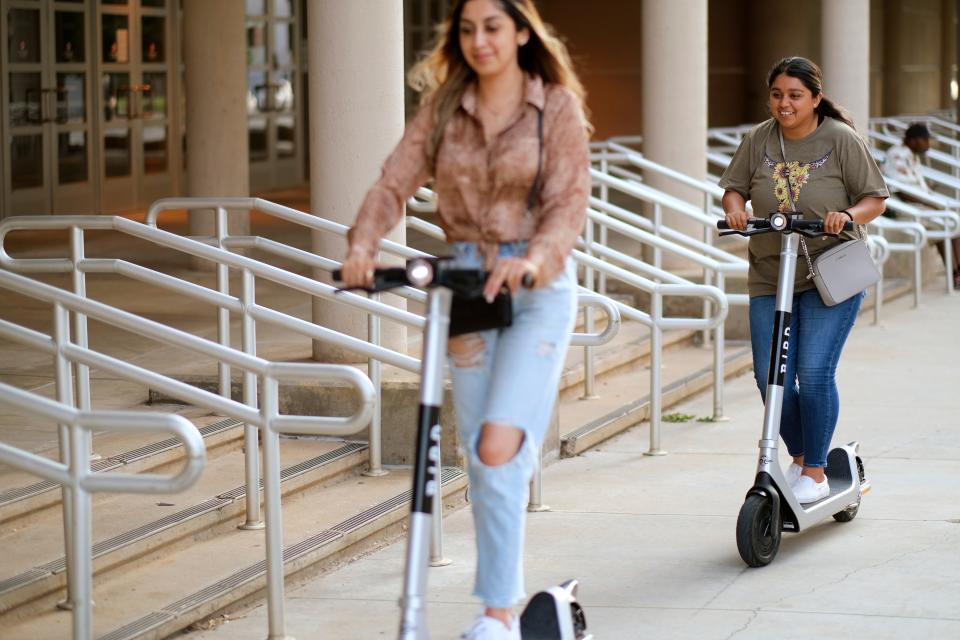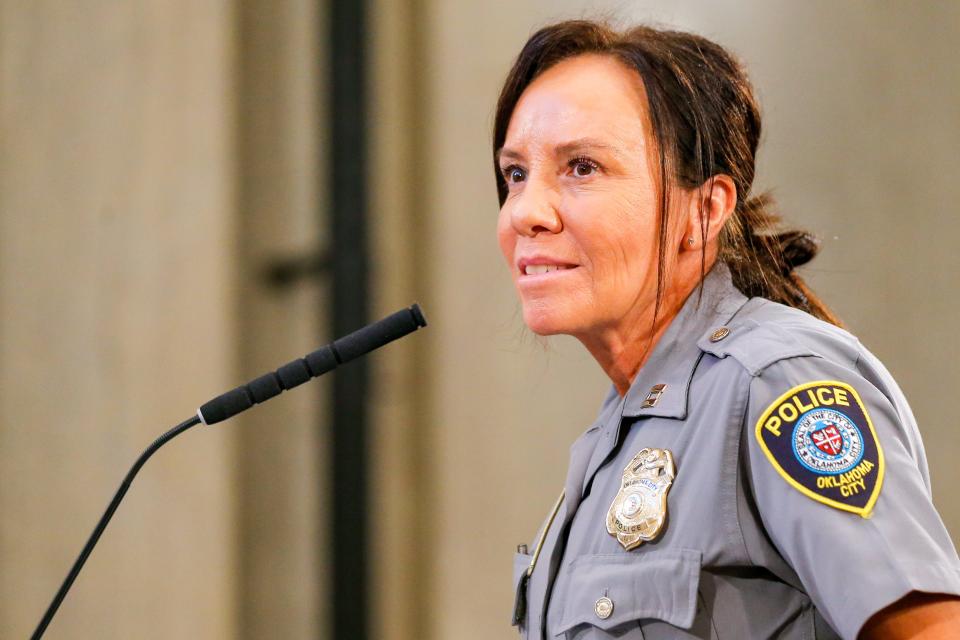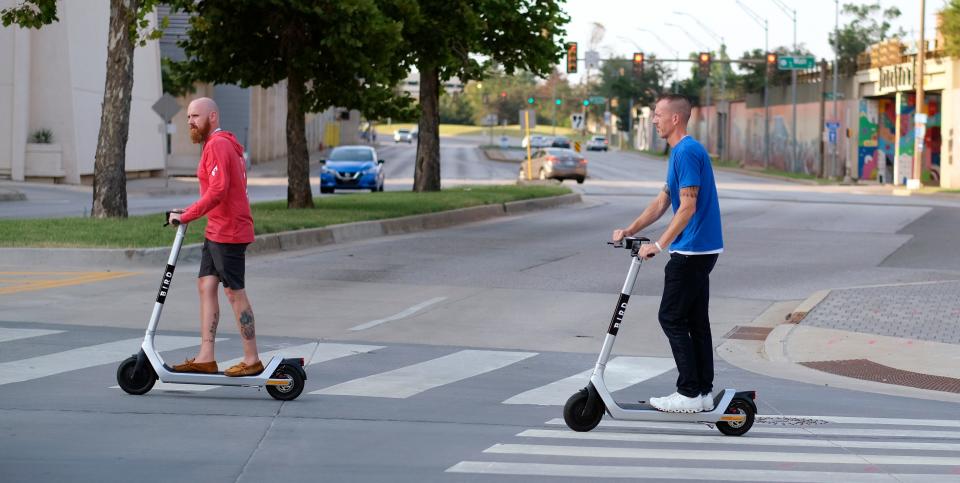Sick of E-scooters blocking the sidewalk? Police might be cracking down soon.
Motorized scooters, also known as electric scooters or "E-scooters," are already illegal to operate on sidewalks in Oklahoma City. After Thanksgiving, residents might see even more restrictions for them.
A new proposal, supported by local police and the city's traffic commission, would further prohibit E-scooters from being ridden by users younger than 16 and from being ridden on streets with posted speed limits of 40 mph or higher.
The proposal would bring Oklahoma City in alignment with E-scooter regulations in state law, which was updated through Senate Bill 1430 in November 2022. That legislation amended the definition of what counts as a motorized scooter and set the standard age limit for operation of an E-scooter to at least 14 years of age, provided a local law did not require an older age.
The new OKC ordinance also would reflect state law when it comes to E-scooter riders having to obey applicable traffic safety regulations while riding on a public roadway.

"Currently, we don't have any ordinance that we could enforce," said Capt. Audrea George, with the Oklahoma City Police Department, while recently presenting the ordinance to the city council. "This just allows us, if someone is operating a scooter in a dangerous way, it allows us to actually take enforcement action."
More: New electric scooters in Oklahoma City are illegal on sidewalks, use on streets unclear
Electric scooters, known as E-scooters, are powered by a rechargeable battery but can't exceed speeds of 35 mph. They are often operated by shared services and outfitted with GPS so that a user can easily locate them.
Rental companies often tout E-scooters for their convenience and affordability, but they are often a huge headache to downtown commuters and business owners alike, who've often complained about the police's inability to regulate their use effectively.

"Ever since rentable electric scooters landed in downtown, it has been a topic of concern for the downtown business community," wrote Kristen Vails, place management director at the nonprofit OKC Downtown Partnership, in a summary report of public feedback to local police. "The passage of the new state law that gives municipalities the authority to have additional regulation in city limits is an exciting opportunity to address these concerns."
After police introduced the proposal to city officials Oct. 24, councilmembers agreed to hold public hearings on the proposal on Nov. 7 and Nov. 21 before they vote on it.
Related: Bird scooters return to Oklahoma City after obtaining license
Downtown OKC, Bricktown business owners request better enforcement of E-scooter regulations

Last year, police consulted business owners in the downtown area on issues they were experiencing with the E-scooters. According to a survey conducted by Downtown OKC Partnership, most business owners believe E-scooters should not be allowed on sidewalks and should be more strictly regulated.
Many survey respondents also said E-scooters should not be allowed in busy pedestrian areas like the Bricktown Canal, Myriad Botanical Gardens and Scissortail Park. Feedback showed that inactive E-scooters caused issues with accessibility and compliance with the Americans with Disabilities Act.
"Additionally, we feel there are opportunities for the City of OKC to enhance scooter regulation via the operating agreements with scooter companies," Vails wrote. "The downtown community would welcome any discussion regarding updates to these agreements moving forward."
Q&A: E-scooter crashes could carry legal risks
In the past, people have posted on social media with the hashtag #ScootersBehavingBadly, voicing complaints about being hit by E-scooter riders, being forced to walk in the street as the scooters take up sidewalks and being blocked from private parking spaces by the scooters.
Rules and safety recommendations already in place for E-scooter users include:
Riders can use a scooter in a bike lane or a street but not on a sidewalk or a trail.
Riders must follow transportation safety rules and stop at traffic lights and stop signs.
Riders must always yield to pedestrians. Look out for pedestrians coming out of buildings or from between parked cars.
Riders are encouraged to park the scooters close to the curb, or next to a bike rack.
While E-scooters have presented safety challenges and generated plenty of criticism from local business owners, they also have shown to have positive effects elsewhere, including health, environmental and economic benefits.
“E-scooters, which were a novelty just a few years ago, are here to stay,” said Jonathan Adkins, CEO of Governors Highway Safety Association, a nonprofit devoted to transportation safety issues. “They are not cost-prohibitive for personal use, and scooter-share systems are expanding or launching in more cities every year. Everyone deserves to feel safe on the road, and we must do more to prioritize safety for this growing mode of travel.”
This article originally appeared on Oklahoman: New E-scooter regulations proposed for OKC police enforcement

